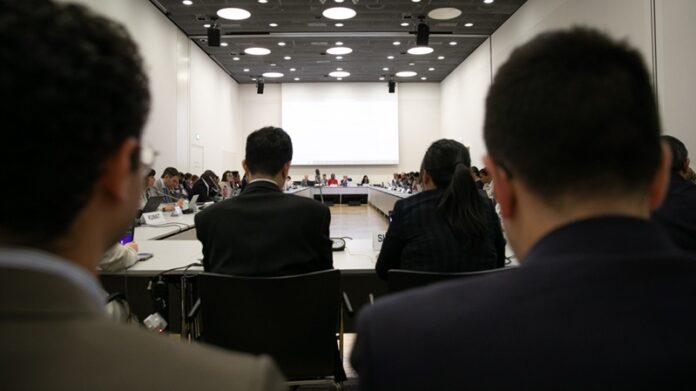Countries failed to make progress on a post-2025 climate finance goal in Bonn, with negotiators from developing and developed countries blaming each other in fiery exchanges at mid-year UN talks.
As discussions wrapped up on Tuesday, representatives of countries on both sides expressed disappointment with the process that is intended to result in an agreement on a new collective quantified goal (NCQG) at COP29 in Baku in November.
They will leave the German city with a 35-page informal “input paper” stuffed with wildly divergent views and repeatedly described as “unbalanced” by negotiators during the final session of the talks.
A negotiator from Barbados pleaded with colleagues to expedite talks, saying, “It’s time we get down to serious business.” She said that “more and more SIDS [small island developing states] and LDCs [least-developed countries] disappear from this gathering because we disappear from this planet.”
Show us the money
For most developing countries, the sticking point is the lack of negotiations on the size of the new goal – known as the “quantum” in technical language. Governments have already agreed that the new target should be set “from a floor of $100 billion per year” – the existing commitment – and should take into account “the needs and priorities of developing countries”.
The recommendations put up by the African and Arab groups in Bonn ranged from $1.1 trillion to $1.3 trillion annually for the five years starting in 2025. In the meantime, wealthy states were accused of not doing the same and of not wanting to discuss data.
The negotiator representing Egypt stated, “We haven’t heard anything from them on their vision for the quantum.” The delegate from Saudi Arabia stated, “Every time there’s been [one] excuse or another why we couldn’t discuss quantum.”
China echoed the same sentiment, but went further in its tirade against some developed countries. “We have been dealing with [a] few insincere and self-serving nations that have no intention of honoring international treaties,” the country’s negotiator said, referring to the 2015 Paris Agreement.
“We have no intention to make your number look good or be part of your responsibility as we are doing all we can to save the world,” he added, hinting at rich countries’ long-standing attempts to broaden the list of finance contributors to developing countries that are wealthier and more polluting.
‘A long way to go’
Developed nations charged that their counterparts were attempting to find common ground rather than reaffirming their positions.
The current paper, which is not a negotiation agreement, according to Australia’s envoy, “shows how much we disagree.” She continued, saying that “if we engage in a game of striking out each other’s texts […] or a tug-of-war, there won’t be an agreement in Baku.”
She conveyed the government’s opinion that a monetary target should not be set until the goal’s structure has been determined, as it is like “the star on top of the Christmas tree.”
“We are not in a process that will help us get to a final text,” the negotiator for the UK stated, adding that “we have a long way to go.”
Bonn Talks on Climate Finance Goal End
A representative from the United States called for a “step change” in the process. “I feel most of what we’ve been doing is repeating views and not going into details on what folks mean,” he added.
The Arab Group’s representative, Saudi Arabia, returned to the floor after the developed nations’ remarks. “I have to stand up for my group members,” he declared. “They are gaslighting us.”
The co-chairs of the negotiations will now have to draft a fresh, informal statement outlining a course of action based on the differing opinions. Before the next round of negotiations, which has not yet been set, the revised paper will be delivered to the governments.
“We encourage you to reach out to others using the inter-sessional period [between meetings] to discuss areas where you see fertile common ground,” said co-chair Zaheer Fakir in closing remarks. “Up until now we have not seen concrete efforts to reach out to your partners.”
(Reporting by Matteo Civillini and Joe Lo; editing by Megan Rowli


